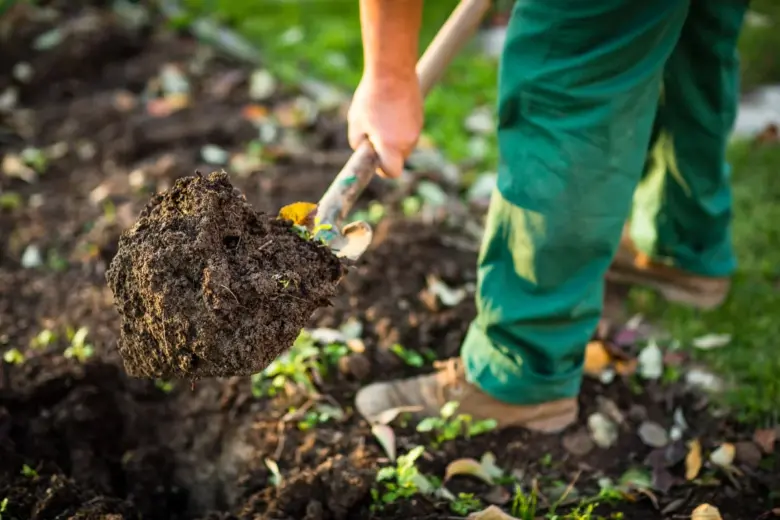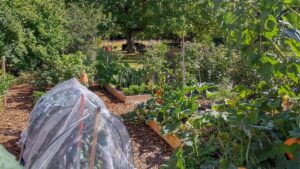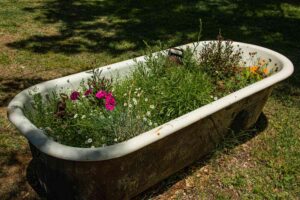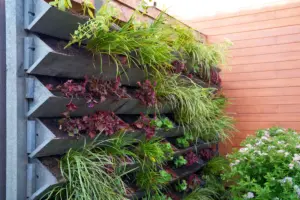For gardeners, soil is not just the ground beneath their feet; it is the living, breathing foundation that plants need to grow. But keeping your soil healthy and fertile can be tricky, especially if you want to use sustainable methods that are good for the planet. You don’t have to use fertilizers or do things that are harmful to the environment to improve the soil in your garden. Instead, there are ways to improve the structure and fertility of your land in the long term, which is good for the planet. To keep your garden soil healthy and your plants full of life, here are five ways to improve your soil in the long term.
1. Compost: Turning Waste into Treasure
Composting is an important part of permaculture gardening because it turns food scraps, yard waste and other organic matter into rich, healthy compost. This process not only reduces the amount of waste that ends up in landfills but also creates a natural fertilizer that makes the soil healthier and more fertile. When you add compost to your garden, you introduce nutrients and microorganisms that support plant growth and soil health. Add a mixture of green (nitrogen-rich) and brown (carbon-rich) materials to your garden compost bin or compost pile. Turn it regularly to speed up the decomposition process. Over time, what would otherwise be thrown away becomes beneficial soil nutrients.
2. Coverage: Natural Blanket
Mulch is very useful to gardeners in many ways. It keeps the soil moist, kills weeds and decomposes slowly to add organic matter to the soil. Chopped leaves, straw, wood chips and grass clippings are all durable mulch materials that improve the soil as they break down. Spreading a layer of mulch about two to four inches thick around your plants not only improves the soil but also creates a more stable environment around the roots, protecting them from temperature changes. Plus, mulch usually uses things you already have on your property so you don’t have to get them from somewhere else.
3. Rotation Crops and Cover Crops: A Dynamic Mix
Rotating crops and planting cover crops are proven ways to keep your soil healthy. Planting different types of crops in the garden each year can prevent the soil from drying out and prevent the spread of pests and diseases. Each plant needs different nutrients and adds structure to the soil in different ways. By planting something different in each location each year, you naturally balance the nutrients and make the soil more fertile.
When gardens are empty out of season, cover crops such as clover, vetch and rye are often planted. These plants add organic matter to the soil, prevent it from washing away and even fix nitrogen, an important nutrient for plants. Simply cutting these plants back in the spring and working them into the soil adds nutrients and improves the soil.
4. Let in Beneficial Insects and Microorganisms:
Not only do plants grow in healthy garden soil, but the soil is also home to many beneficial insects and microorganisms. These animals are important for breaking down organic matter, adding air to the soil and converting nutrients into forms that plants can use. Reducing tillage maintains soil structure and prevents disturbance of these beneficial organisms, creating a diverse microbial environment. Adding organic waste, such as compost, also feeds microorganisms, further improving soil health and fertility.
5. Use Fewer Chemicals and More Natural Methods:
For long-term soil improvement, the use of chemicals such as synthetic fertilizers and pesticides should be minimized. These chemicals can damage microorganisms in the soil, causing the loss of nutrients and ultimately harming the health of the soil. Instead, focus on organic methods, which naturally make the soil more fertile and less susceptible to pests. For example, you can use compost, organic mulch and natural methods to eliminate pests and support a healthy ecosystem in your garden.
Conclusion:
By using these eco-friendly methods, gardeners can not only improve their soil, but also make the world a better place. Make peace with nature through composting, mulching, crop rotation, promoting biodiversity and reducing the use of chemicals. They improve the soil, help plants grow stronger, reduce damage to the soil and make gardening more sustainable in the future. Remember that healthy soil is the key to a successful garden, and when we care for the soil, we care for life itself.
FAQs:
1. How often should I mix compost into my garden soil?
You can add compost to your garden soil at least once a year, but it is best to do this in the spring before you start planting. This allows the compost to mix and improve the soil, making it a great place for new plants to grow. For plants with poor soil, adding more compost in the fall can help things improve over time.
2. Which materials are best for sustainable garden mulch?
Organic, biodegradable mulch materials such as grass clippings, wood chips, shredded leaves and straw are all good options. Over time, these things break down and organic matter is added to the soil. To prevent chemicals from entering your garden, it is best to choose natural, untreated materials.
3. Is crop rotation only suitable for large farms, or does this also apply to small gardens?
No matter the size of your garden, even a small vegetable garden should use crop rotation. Rotating crops, even in a small area, can help keep the soil from drying out and prevent the growth of pests and diseases. Gardens of all sizes can make the most of this practice by planning plant placement with rotation in mind.
4. How do I keep good insects and bacteria alive in my garden?
Creating a good environment for beneficial insects and microorganisms is part of attracting them. You can do this by using fewer or no chemical pesticides, adding organic matter to the soil, planting a variety of plants and creating a habitat with things like mulch, undisturbed soil and plants that attract good insects.
5. Could something bad happen if I use fewer chemicals in my garden?
Reducing chemical use is good for the climate and soil health, but some gardeners may face initial problems such as an increase in pests or a slowdown in soil improvement as the garden ecosystem adapts. However, these problems can be alleviated by being patient, using integrated pest management, and adding and following organic practices that help keep your garden environment healthy and balanced.



